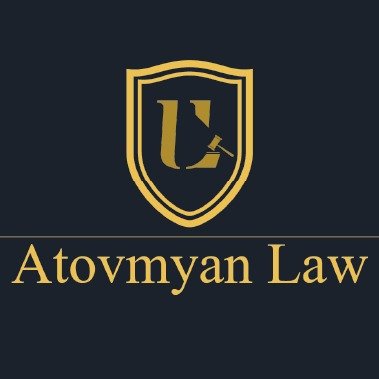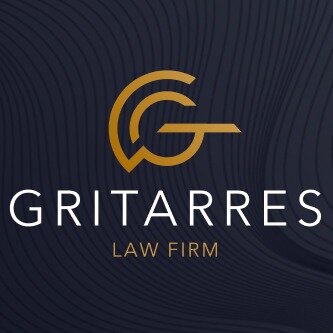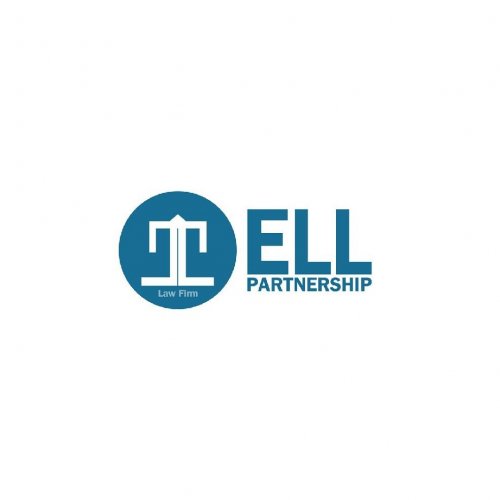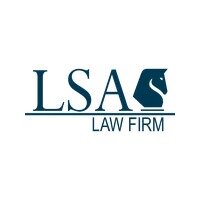Best Tax Increment Financing Lawyers in Armenia
Share your needs with us, get contacted by law firms.
Free. Takes 2 min.
Or refine your search by selecting a city:
List of the best lawyers in Armenia
About Tax Increment Financing Law in Armenia
Tax Increment Financing (TIF) is an economic development tool used in many countries, including Armenia, to support and finance public improvements and stimulate private investment. In Armenia, TIF laws are designed to enable local municipalities to delineate specific areas for development and then utilize the incremental tax revenues generated from the increased property values to finance infrastructure improvements and other critical projects within those areas. This mechanism is introduced to rejuvenate underdeveloped, blighted, or underutilized parts of cities, encouraging economic growth and sustainability.
Why You May Need a Lawyer
There are several scenarios where seeking legal advice regarding TIF can be crucial:
- Understanding the eligibility criteria for a TIF district and determining whether your project qualifies.
- Drafting and negotiating development agreements with municipalities.
- Navigating the complex approval processes for TIF projects, which might involve multiple government entities.
- Assessing the risks and potential returns associated with investments in TIF districts.
- Ensuring compliance with all regulatory requirements and local ordinances related to TIF projects.
- Resolving disputes or legal challenges that may arise during or after the TIF project implementation.
Local Laws Overview
Armenian TIF laws provide a legal framework outlining the establishment, development, and management of TIF districts. Key aspects include:
- Creation of TIF Districts: Criteria for designating areas as TIF districts, typically requiring these areas to suffer from economic underdevelopment or blight.
- Financing Mechanism: Mechanisms for capturing and reallocating increased tax revenues to fund public improvements.
- Eligible Projects: Types of projects that can be funded, including infrastructure, public utilities, housing, and brownfield redevelopment.
- Approval Process: Roles of local councils and state agencies in the approval and oversight of TIF plans.
- Transparency and Accountability: Reporting and auditing standards to ensure proper use of funds and project outcomes.
Frequently Asked Questions
What is Tax Increment Financing?
Tax Increment Financing is a method of funding public projects through the future increase in property tax revenues resulting from enhancements in a designated area.
Who can establish a TIF district in Armenia?
Local municipalities, often in collaboration with state authorities, have the power to designate TIF districts under Armenian law.
What types of projects are typically financed by TIF?
TIF is commonly used to finance infrastructure improvements, public utilities, environmental remediation, and affordable housing developments.
How does TIF benefit local communities?
TIF can stimulate economic growth, increase property values, create jobs, improve infrastructure, and generate community revitalization.
Are there risks associated with TIF projects?
Yes, risks include project underperformance, insufficient revenue generation, and potential displacement impacts on local communities.
Can private developers apply for TIF financing?
Private developers typically partner with municipalities to apply for TIF, leveraging future tax increments for their projects.
How is accountability ensured in TIF projects?
TIF projects are subject to strict audit and reporting requirements to ensure public funds are used responsibly.
Do TIF districts increase taxes for residents?
No, TIF does not increase existing taxes. It reallocates future tax revenue increases to finance specific projects.
What is the typical duration of a TIF district?
The lifespan can vary but typically lasts 15-30 years, allowing sufficient time for projects to be completed and tax increment realized.
How can I find out if a property is in a TIF district?
You can contact your local municipal planning department or access government resources for maps and information on TIF zones.
Additional Resources
For further information and assistance, consider reaching out to the following resources:
- The Ministry of Territorial Administration and Infrastructure of Armenia for guidance on TIF policies and applications.
- Local municipal planning departments for specific information on active TIF districts and planned projects.
- Economic development offices equipped with resources and support for potential TIF projects.
- Consulting with legal professionals who specialize in TIF laws to gain personalized insights and support.
Next Steps
If you require legal assistance in the field of Tax Increment Financing in Armenia, consider taking the following steps:
- Consult with a TIF Specialist: Engage a lawyer or consultant specializing in TIF to understand your legal obligations and opportunities.
- Prepare Required Documentation: Gather all necessary property, tax, and project information for legal and municipal review.
- Engage with Municipal Authorities: Initiate dialogue with local government officials to understand the procedures and requirements for TIF proposals.
- Review Local Regulations: Ensure compliance with all relevant TIF guidelines and local development regulations.
- Explore Funding Opportunities: Investigate potential financial partners and incentives that can be leveraged in conjunction with TIF.
Lawzana helps you find the best lawyers and law firms in Armenia through a curated and pre-screened list of qualified legal professionals. Our platform offers rankings and detailed profiles of attorneys and law firms, allowing you to compare based on practice areas, including Tax Increment Financing, experience, and client feedback.
Each profile includes a description of the firm's areas of practice, client reviews, team members and partners, year of establishment, spoken languages, office locations, contact information, social media presence, and any published articles or resources. Most firms on our platform speak English and are experienced in both local and international legal matters.
Get a quote from top-rated law firms in Armenia — quickly, securely, and without unnecessary hassle.
Disclaimer:
The information provided on this page is for general informational purposes only and does not constitute legal advice. While we strive to ensure the accuracy and relevance of the content, legal information may change over time, and interpretations of the law can vary. You should always consult with a qualified legal professional for advice specific to your situation.
We disclaim all liability for actions taken or not taken based on the content of this page. If you believe any information is incorrect or outdated, please contact us, and we will review and update it where appropriate.
Browse tax increment financing law firms by city in Armenia
Refine your search by selecting a city.

















